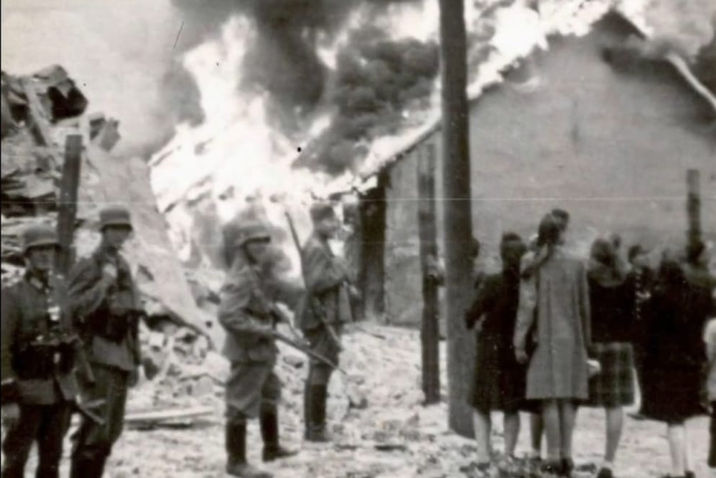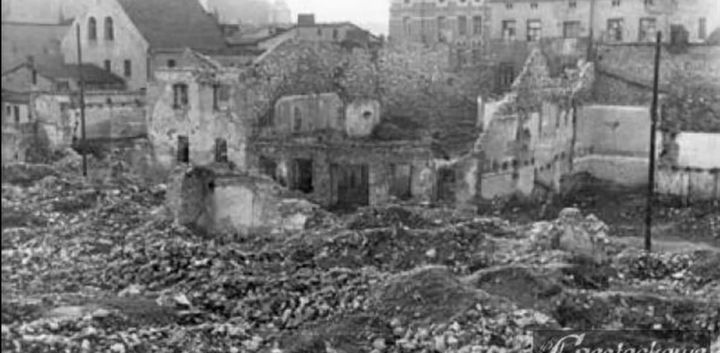Historical Photographs

Holocaust Monument
A Brief History.
Częstochowa, a city in southern Poland, is best known for the Jasna Góra Monastery, home to the Black Madonna, a revered religious icon. It has a rich Jewish history, which was significantly impacted by the events of World War II. Before World War II, the Jewish community in Częstochowa dates back to the late Middle Ages, but it really began to grow significantly in the 19th century as Jews moved there for economic opportunities. By the early 20th century, Jews constituted a considerable part of the city’s population. They were active in trade, industry, and cultural life, and established numerous synagogues, schools, and social organizations. In the interwar years, Częstochowa had a vibrant Jewish community, which participated actively in the city’s economic and cultural activities. There were many Jewish associations, press publications, and political groups at this time.
When World War II began in 1939, Częstochowa quickly fell under Nazi German occupation. The city’s Jewish population faced persecution immediately, with restrictive anti-Jewish laws and forced labor. In 1941, the Germans established a ghetto in Częstochowa, where Jews were confined in overcrowded and harsh conditions. In 1942, a major deportation took place, sending thousands of Jews to the Treblinka extermination camp. Despite resistance efforts, including some armed struggle, the ghetto was liquidated in 1943 as part of the broader genocidal pursuits of the Holocaust.
After the war, only a small number of Częstochowa’s Jews survived. Some returned to the city, and a Jewish community was briefly re-established, considered a part of the larger Jewish reconstruction efforts in Poland. Over time, anti-Jewish sentiments and communist policies led many of the survivors to emigrate, primarily to Israel, the United States, and other countries during the turbulent post-war years. Efforts have been made in Częstochowa to remember and commemorate the Jewish community and their tragic fate during the Holocaust. This includes monuments, memorials, and cultural events aimed at preserving the memory of Częstochowa’s rich Jewish history. Today, the Jewish presence in Częstochowa is minimal, but its historical influence is recognized as a significant component of the city’s cultural and historical heritage.
All photos or documents used on this website are owned or were provided by their respective owners. These photos are intended for educational purposes only.































